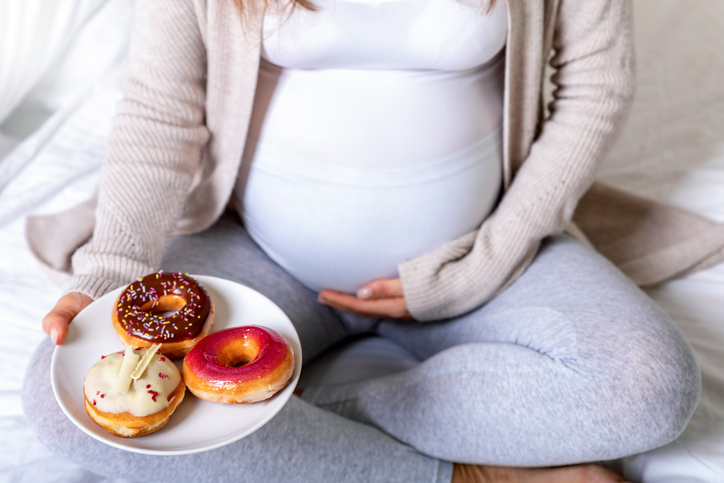We can all agree sugar is a difficult substance to avoid completely. It’s in a lot of the foods we eat, even fruit. But excessive or large amounts of sugar isn’t good for anyone, especially when you’re pregnant.
The foods you eat during pregnancy not only fuel your own health, but that of your child in the pre development stages, as well as when they leave the womb. It’s common to think that eating whatever foods you crave during pregnancy is allowed, but it’s important to focus on nutrient rich foods during this time.
So how much is too much when it comes to sugar during pregnancy? Read more for advice on sugar amounts and how to limit sugar intake.
How much sugar can you have while pregnant?

Women who are pregnant are advised to keep “free” sugar intake to under 30 grams (a little over 7 teaspoons). Have you measured out a true teaspoon? It’s not a lot.
But what is “free” sugar? This term refers to the amount of sugar excluding the sugars found in natural foods like whole grains, fruits, or vegetables. In other words, it could be the extra sugar you get from processed foods, actual granulated sugar, or sweetness from other snacks and desserts. For reference, one packet of sugar you get at a coffee shop is typically 1 teaspoon.
This general free sugar guideline should also be followed throughout the entire pregnancy. In other words, you shouldn’t really loosen up and have more sugar in the later stages simply because the baby is bigger.
What about artificial sweeteners?
Because artificial sweeteners do not biochemically consist of sucrose, artificial sweeteners can be ok. They are actually made from sucralose or aspartame. Although some people argue over the long-term negative side effects from artificial sweetener synthetic compounds.
However, one chemical that should be avoided is saccharin. Saccharin can be found in diet sodas, gum, canned fruit, baked goods, and other foods. Saccharin can cross the placenta and embed itself in fetal tissue.
It goes without saying that if you are going to incorporate artificial sweeteners into your diet, it should also be done in moderation just like regular sugar.
